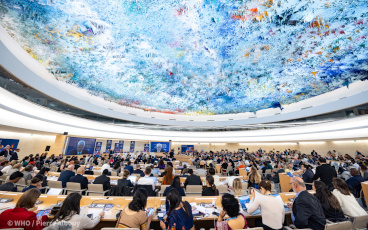Abu Dhabi Crown Prince contributes to vaccines for Pakistan and Afghanistan
The Crown Prince of Abu Dhabi joins the Bill & Melinda Gates Foundation to purchase and deliver polio vaccines for Afghan and Pakistani children and protect them from paralysis.
His Highness Sheikh Mohammed bin Zayed Al Nahyan and Bill Gates, Co-Chair of the Bill & Melinda Gates Foundation, announced today they are working together to provide life-saving vaccinations to children in Afghanistan and Pakistan. The partnership commits a total of US$100 million – US$50 million from each partner – for the purchase and delivery of vital vaccines that will save Afghan and Pakistani children and prevent disease for a lifetime.
Of the total funds, two-thirds will be given to the GAVI Alliance for the purchase and delivery of the pentavalent vaccine and for the introduction of the new pneumococcal vaccine in Afghanistan. The remaining US$34 million of the allocated funds will be directed to the World Health Organization and UNICEF to deliver polio vaccines in Afghanistan and Pakistan. Although worldwide polio has been reduced by 99 percent during the past 20 years, Afghanistan and Pakistan are two of only four countries where polio transmission has never been stopped. To date, there has been a cycle of re-infection of this crippling disease between the populations of the two countries.
The partnership will help polio eradication workers reach approximately 35 million children in Afghanistan and Pakistan with oral polio vaccines.
New health partnership in Middle East: Bill Gates blogs about the new cooperation.
Full press release













